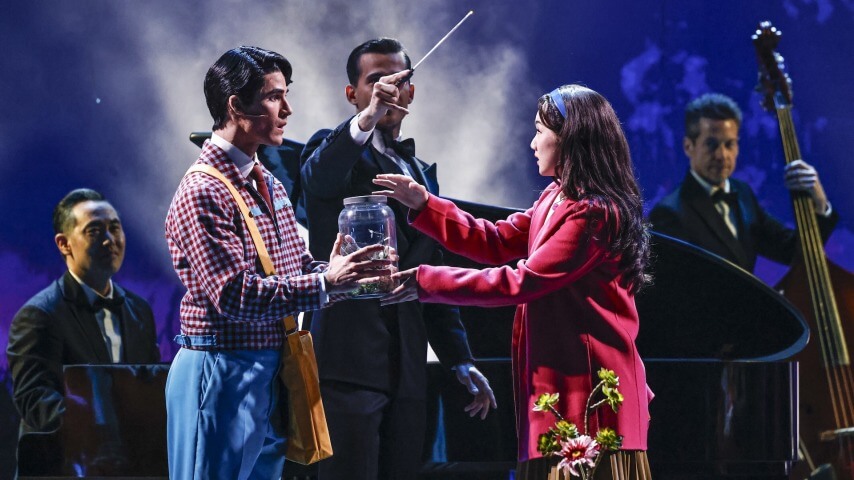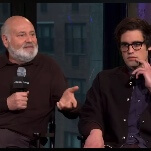In a lengthy post to social media, the show’s creators Hue Park and Will Aronson addressed the backlash. The main characters of Maybe Happy Ending are robots, so while they wanted the show to be rooted in Korean culture, they argue that the show was written so that anyone could play the leads and it could be performed on any stage. “We wrote a show about robots so we could engage more intimately with the most basic human questions of love and loss, creating the roles of Oliver and Claire to be avatars of these universal questions. They were meant to be products created by a global company, and so never bore Korean names, even in the Korean version of the show. At the same time, we understand that for many in the AAPI community, the makeup of our opening night cast became a meaningful and rare point of visibility. We’ve heard how strongly people connected to that representation, even if it wasn’t our original intent, and how this casting decision has re-opened old wounds,” they wrote in their statement.
Criss, the creators wrote, was cast for “his ability to project boyishness and innocence, with a not-leading-man-broadway-belt style of voice.” Notably, Criss is not Korean, but Filipino on his mother’s side. Nevertheless, his Tony win made history and the show’s representation was obviously meaningful for many. Among those who have spoken out about Feldman’s casting include Broadway vet Telly Leung and Tony winner BD Wong. The Asian American Performers Action Coalition released a statement (via Playbill) criticizing Maybe Happy Ending for setting a precedent “that de-emphasizes cultural specificity and the opportunities for a far too often excluded population of actors that come with it.” The statement goes on to say, “If the intent has been to show the story’s ‘universality,’ we are reminded that though we have long been expected to view white stories populated by only white actors as ‘universal,’ stories about people who look like us that are populated by people who look like us are rarely considered universal enough.”
Shen (an actor of Chinese descent), who originated the show’s female lead alongside Criss, released her own statement on Instagram, writing in part, “This has been an immensely challenging moment within my home with Andrew, and in this building filled with [Asian/Pacific Islander] folks to say the least. I don’t know what’s forward, but to have this opportunity to play opposite my favorite actor in the world for 9 weeks, who happens to be PERFECT for the role is a huge moment of joy for me.” She added, “Every perspective on this situation contains truth. This conversation must be had, and it’s not the last time I’ll be talking about it or amplifying other people’s perspectives here. I am excited to champion more A/PI works, the way the community has championed Maybe Happy Ending. I’m also excited to see work that has a completely different take than Maybe Happy Ending, that can contradict itself, that can be many things, proving that diaspora is a tapestry, and not a monolith.”
Park and Aronson concluded their own statement by writing, “We’re extremely saddened that the show, a decade-long labor of love for us, could ever become a source of confusion, anger, or pain. We hope this gives a small window into our own thought process in the creation of Maybe Happy Ending. We’re so grateful for the artists and audiences who’ve embraced this story, and we will continue our conversations as Maybe Happy Ending continues its journey onstage.”























![HBO teases new Euphoria, Larry David, and much more in 2026 sizzle reel [Updated]](https://img.pastemagazine.com/wp-content/avuploads/2025/12/12100344/MixCollage-12-Dec-2025-09-56-AM-9137.jpg)

















